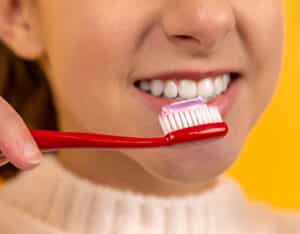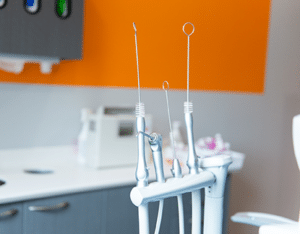Have you ever felt pain or discomfort after a bite of ice cream or a spoonful of hot soup? If so, you’re not alone. Tooth sensitivity is one of the most common complaints that dental professionals hear from their patients. According to studies, tooth sensitivity affects over 12% of adults and over 33% of adults have untreated decay. Although enamel erosion and untreated decay can be a common reason for sensitivity, many other reasons for tooth pain & sensitive teeth also exist.
When you have sensitive teeth, certain activities, such as brushing, eating, and drinking, can cause sharp, temporary pain in your teeth. It may be time to talk to your dentist about your sensitive teeth.
To be able to treat the sensitivity, it helps to know what might be the source of the pain.
What Causes Sensitivity?
- Enamel erosion: Also called dentin hypersensitivity happens when the enamel is exposed to wear and tear by acids or mechanical forces, which can thin enamel and expose the next & more sensitive tooth layer called dentin.
- Tooth decay: Commonly referred to as cavities, tooth decay is a softening of the tooth enamel that leads to holes in the tooth in which bacteria can infect.
- Infected tooth nerve: If decay is left untreated, bacteria can infect the dental pulp, which is the nerve of the tooth. The nerve becomes infected and can cause pain that must be treated with a root canal.
- Tooth or filling crack: Even small unseen cracks in teeth or fillings can cause sensitivity.
- Recent dental procedures: Having recent dental procedures can temporarily stimulate the tooth nerve, which can cause sensitivity for a few weeks following the procedure.
- Tooth whitening: Ingredients in common tooth whitening products can cause temporary tooth sensitivity.
- Gum recession: If gums recede, they are unable to protect the roots of the teeth, which can result in root sensitivity. Also, if gums recede, bacteria that cause gum infection can rest at the gum line and cause gum sensitivity.
- Gum infection: Gum infections such as gingivitis and periodontal disease can be the source of gum sensitivity.
- Bite Issues – Grinding or clenching: Forces that are created by grinding, clenching, or an unbalanced way that our teeth align can cause stresses to your teeth and oral tissues that lead to tooth and gum sensitivity.
- Sinus infection: Because the roots of upper teeth are close to our sinuses, when sinuses are infected, they can become inflamed and put pressure on tooth roots, which can cause teeth to feel achy or painful.
Take Care Of Tooth Enamel:
- Don’t brush too hard: Side-to-side brushing right at the gum line can make your enamel go away faster. You should use a soft-bristled brush and work at a 45-degree angle to your gum to keep enamel clean and strong.
- Unclench your teeth: Over time, teeth grinding wears away your enamel. Your dentist can fit you for a splint or a mouthguard.
- Take a break from bleaching: Sensitivity from bleaching is usually temporary. Talk to your dentist about how the treatment might be affecting you, and whether you should continue it.
- Avoid acidic foods and drinks: Carbonated drinks, citrus fruits, and wine all of which can remove small amounts of tooth enamel over time. When you drink acidic liquids, use a straw to limit contact with your teeth. After eating or drinking an acidic substance, drink water to balance the acid levels in your mouth.
When Should I Call My Dentist?
While having sensitive teeth is not usually considered a dental emergency, teeth that are causing you prolonged sensitivity should be examined by a dentist to diagnose the causes or rule out some of the more serious causes mentioned here and offer treatment and advice.
If at-home remedies do not alleviate sensitivity or sensitivity increases, you should call your dentist for an appointment to evaluate the problem. Your dentist can examine your mouth to determine if you have a tooth or gum infection and provide appropriate treatment.
Keep in mind that sensitivity is not the same as pain. If you experience dental pain for longer than 48 hours, you should contact your dentist immediately as it may be the sign of a serious infection that could affect your overall health.
As your dental professionals, we are here to answer your questions and help you find the best ways to alleviate your dental sensitivity!





